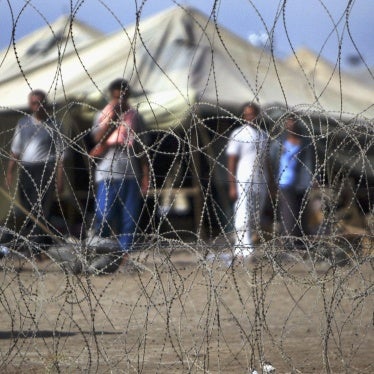As the clock ticks down the last days of the George W. Bush administration, a long list of people are hoping the president might pardon them for their criminal acts. This year, it is possible the president himself, as well as members of his administration, might be on that list—for authorizing torture. On his way out the door, President Bush might be tempted to protect himself and members of his administration by issuing a broad pardon for any crimes committed in the course of fighting terrorism.
The Constitution allows the president to issue such a blanket, pre-emptive pardon. The only real impediment is the admission of guilt that such a pardon would imply. Attorney General Michael Mukasey said recently that there is no need for a pardon because everyone involved thought they were acting lawfully, and Vice President Dick Cheney has claimed that even his authorization of waterboarding was legal. But the president may issue a broad pardon anyway for fear that the Obama administration would reach different conclusions.
The president should resist the temptation to pardon, because a pardon would flout the principle that even the president is not above the law. No president, not even Richard Nixon facing possible Watergate charges, has ever pardoned himself. President Bush must be dissuaded from that course.
Ordinarily, it falls to the Justice Department to investigate and prosecute federal crimes. But under the American system, the Justice Department is part of the executive branch, meaning the president can order it to overlook crimes he approves of. That’s why the Justice Department has ignored, for example, the crime of waterboarding, a form of torture—mock execution by drowning—that has been prosecuted as a war crime in the United States for more than 100 years.
Some countries consider it improper for a government leader to tamper with the independent judgment of prosecutors. Prosecutors are treated as judicial officers, beyond the reach of executive edict. The US approach has the advantage of making prosecutors answerable to an elected official, but at the cost of potentially placing the president above the law.
To remedy that deficiency, the United States has experimented with appointing “independent counsel,” outside the executive chain of command, to examine credible allegations of executive wrongdoing. But the perception that unaccountable independent counsel were pursuing vendettas that ordinary prosecutors would have dropped convinced Congress to let the law authorizing independent counsel lapse.
The Constitution does offer two potential ways to bring the president under the law. One is for Congress to impeach and convict him, removing him from office and thus ending his ability to control the Justice Department. But that option is not possible, if, as in the past eight years, the president commands enough loyalty in Congress to stymie impeachment.
A second remedy is the two-term limit. Ultimately, the president must relinquish office, and with it the ability to stop criminal investigations. But the flaw there is the pardon.
The Constitution empowers the president, at his sole and unreviewable discretion, to pardon anyone for any federal crime. Those pardoned need not have been indicted, convicted, or even identified by name. Jimmy Carter, for example, pardoned all Vietnam War-era draft dodgers.
But the purpose of the pardon is to allow the president to rectify injustices or exercise compassion, not to commit crimes with impunity. To issue a pardon for potentially unlawful executive actions after having blocked Justice Department scrutiny of them would be to create a presidency above the law.
Whatever one thinks of Gerald Ford’s pardon of Nixon, Nixon, to his credit, left the matter to his successor. Moreover, the irony is that it is far from clear that the Obama administration will pursue President Bush or other senior officials. While vowing to “review” available information, the president-elect has said he “would not want my first term consumed” by what might be perceived as a “partisan witch hunt.” He said he would “exercise judgment” to distinguish between “genuine crimes as opposed to really bad policies.” But Bush may still issue a pardon to prevent his successor from even making that judgment.
The success of the American constitutional system depends in important respects on the good will and forbearance of those in office. President Bush should exercise such restraint and avoid issuing a blanket pardon, which would strike a devastating blow to the principle of government under law.
Kenneth Roth has been executive director of Human Rights Watch since 1993. He has published more than 100 articles and chapters on a range of human rights topics. Before joining HRW as deputy director in 1987, he was a federal prosecutor for both the US attorney's office for the Southern District of New York and the Iran-Contra investigation in Washington.








